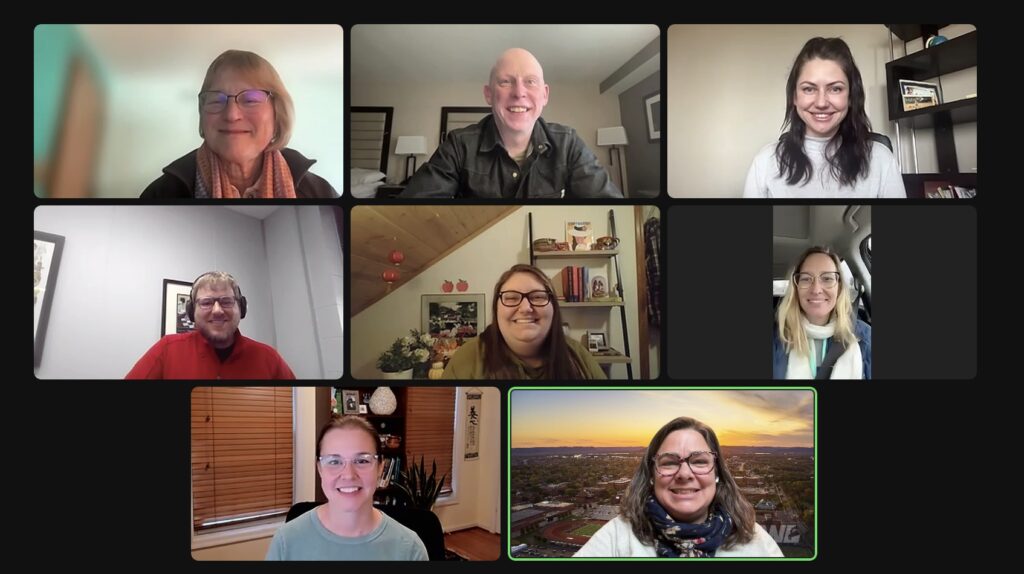WITESOL is committed to advocating for the rights of English Learners. The Advocacy Committee Chair is appointed by the WITESOL Board and is dedicated to furthering WITESOL’s efforts to communicate with local and state policymakers and local government. The Advocacy Chair for 2024 is Melanie Schneider.
WITESOL Advocacy Book Club

The WITESOL Book Club had a great meeting in March! They were visited by Diane Staehr Fenner, author of the book they’ve been reading: Advocating for English Learners: A Guide for Educators. It was wonderful to hear first-hand from Diane about her book and related advocacy issues including the importance of having a “Master Plan” in school districts facing an increase of newcomers. The book club also received some resources from SupportEd, the organization and business Diane co-founded to support teacher PD, coaching, technical assistance, and resources related to MLs.
Are you a WITESOL member interested in joining the next book club meeting on Thursday, April 11th? Email witesolboard@gmail.com to learn more!
Questions and Concerns about Act 20
Together with WIABE, WITESOL is collecting questions and concerns that our members have about Act 20, Wisconsin’s new early literacy law. Please click here to share your questions and concerns. The goal is to share this information with DPI and other stakeholders in order to revise the law so that it includes multilingual learners, their unique literacy needs, and bilingual/dual language programs that serve them in Wisconsin. Thank you for your input!
If you have questions on how to expand your advocacy outside the classroom or would like tips on how this information can be shared with local policy leaders, please contact Melanie Schneider at schneidm@uww.edu or the WITESOL Board at witesolboard@gmail.com
